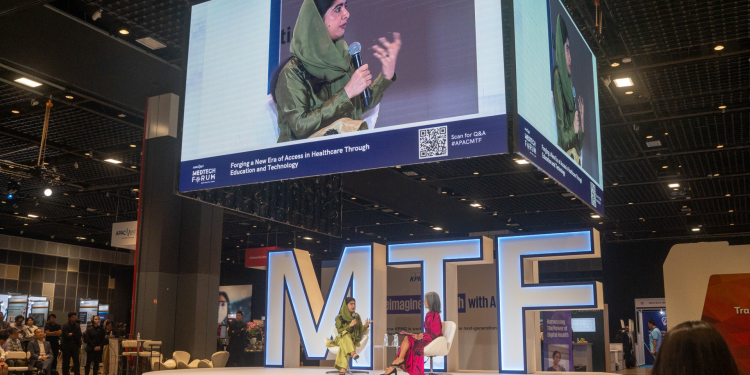Nobel Laureate and global advocate for education and women’s rights, Malala Yousafzai, who has become an international symbol of resilience and advocacy for girls’ education, spoke passionately about education’s critical role in shaping healthcare outcomes at the 10th APACMed MedTech Forum 2024, held at Singapore’s Suntec Convention Centre. She noted that education is not just about academic knowledge but about preparing individuals to navigate life’s challenges, including those related to health.
“Education prepares a child for their future, and that future includes their health as well,” Malala stated. She stressed how access to proper health education, particularly for girls, can have long-lasting impacts on individual and community well-being. She shared a poignant example from her advocacy work, where girls in various parts of the world, including Brazil and Kenya, were dropping out of school due to a lack of sanitary products and adequate facilities. “There needs to be so much awareness raised about reproductive health. It is a vital part of ensuring that girls stay in school and continue their education”.
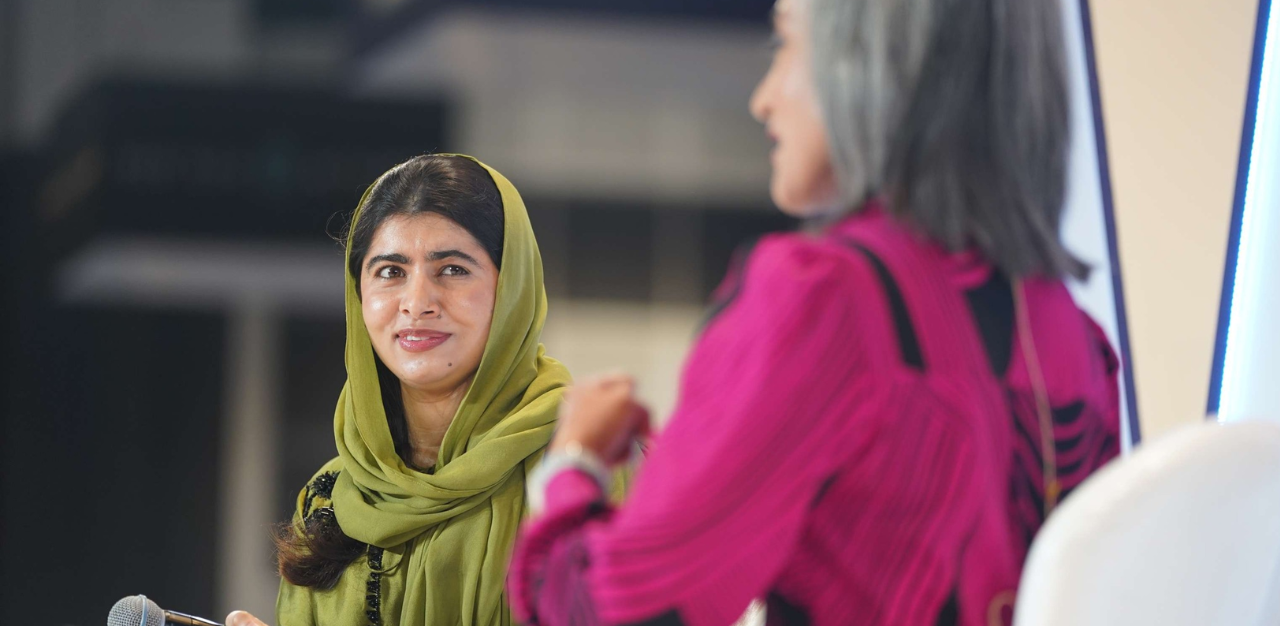
Malala also touched on a deeply personal story about her mother, who faced significant challenges accessing healthcare due to her lack of education. “Even small things like reading the expiry date on medicine or booking an appointment with a doctor became challenges for her because she had to rely on others. It was a clear example of how education directly influences one’s ability to manage their health,” she explained.
In addition, Malala underscored the connection between education and a healthier society, noting that it extends beyond just medical knowledge. “Education is more than just having access to information. Education should give you the ability to process information, to evaluate it and make judgments about it. We live in a world where we are so exposed to fake news and just plenty of information on social media. We need the ability now to process that information and make judgments. What should we trust? What should we not trust? What are the sources? Is this credible or not? What sort of arguments, plausible or not, are these claims making?”. Malala emphasised that critically evaluating information is an essential skill in education and healthcare, especially in a world saturated with misinformation. This, she suggested, is the role of education to impart knowledge and equip individuals with the tools to navigate a complex and ever-changing information landscape.
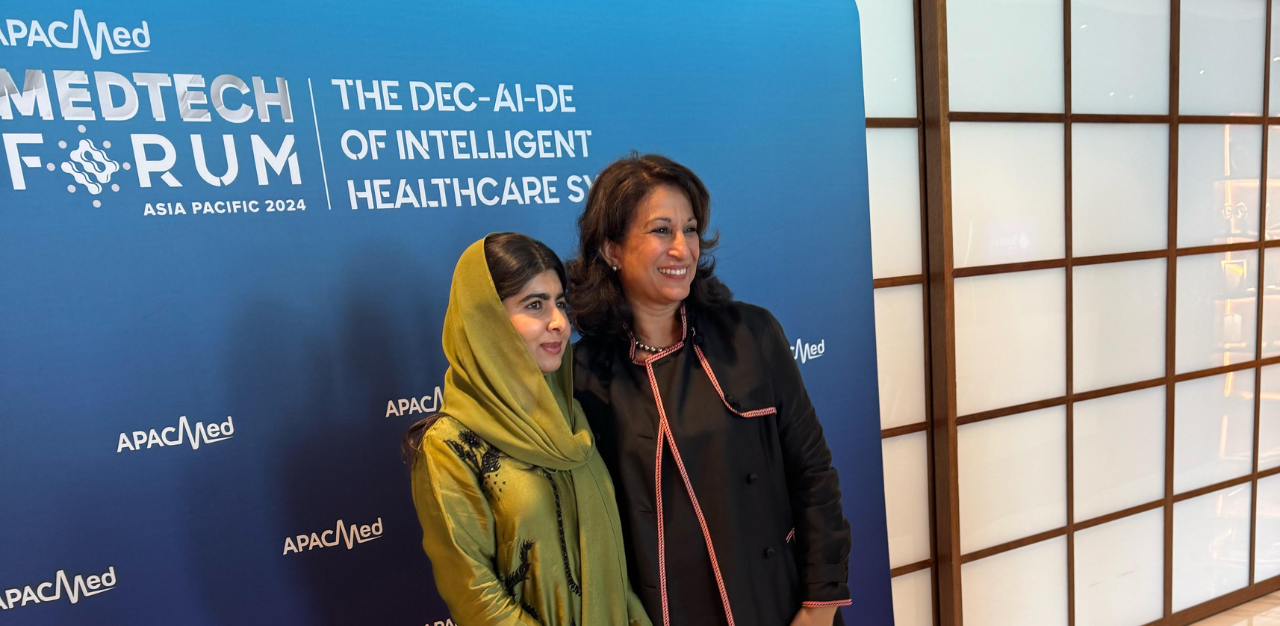
AI in Education: A Complement, Not a Replacement
As AI becomes an integral part of various sectors, including education and healthcare, Malala discussed the advantages and limitations of this technology. While acknowledging the potential benefits of AI, she was careful to point out that it should complement, not replace, human roles—particularly in teaching.
“AI can assist teachers and doctors; it can help make information more accessible. But it cannot replace them,” she asserted. “Education is more than just having access to information. It’s about developing the ability to process, evaluate, and make judgments about that information, something AI cannot teach on its own”.
Malala stressed the importance of maintaining the human connection in education, pointing out that children learn not only from information but from the interactions, collaboration, and empathy that teachers bring to the classroom. “We don’t want to live in a world where a child is not having those interactive classes where they get to meet other students, where they can have a teacher, they can have in-person conversations. These things are just so critical for a child’s learning ability,” she added.
She also stressed the need for caution when integrating AI into education, particularly in ensuring that these technologies are inclusive and address the needs of all learners. “I do hope that those who are driving these changes ensure that these new platforms are inclusive and used as tools to help address some of the world’s biggest problems, including lack of education and access to quality schooling”.
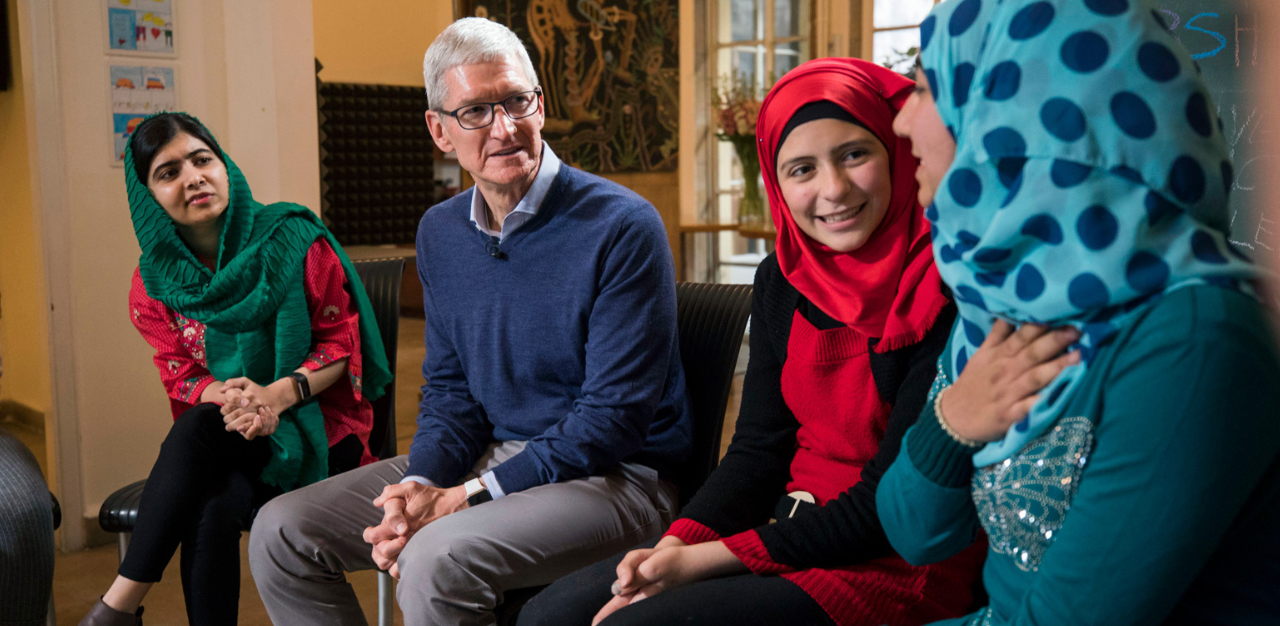
The Link Between Education and Justice
Beyond education and healthcare, Malala reflected on the broader implications of education in promoting social justice and equality. She expressed her disappointment over the global tendency to show solidarity with women only after they have survived adversity. “It does disappoint me and concern me that we only start sharing solidarity when a woman survives. We’re not standing with them when they are in their most difficult and challenging time,” she said.
Malala highlighted how young people’s passion and ambition for justice give her hope for a better future. “They don’t want to live in a world where there are wars, conflicts, and oppression. And that’s what gives me hope for a better future. If young people remain committed and continue to do their advocacy, I believe we will live in a better place,” she shared.
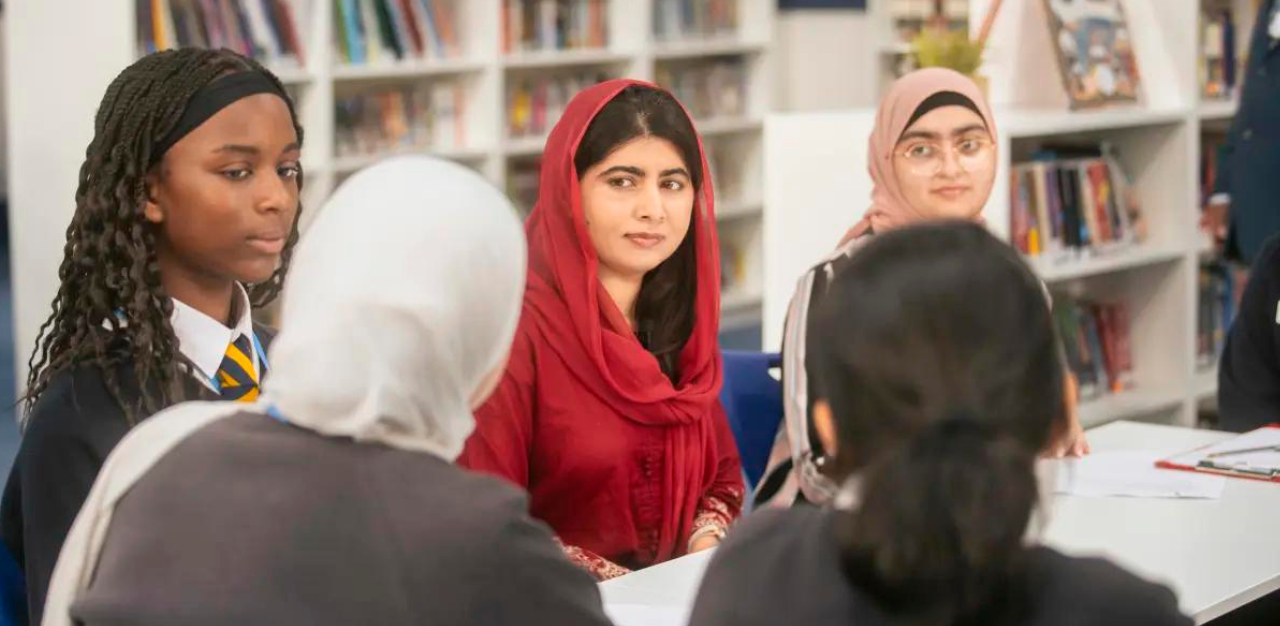
A Call for Inclusivity in AI and Healthcare
As AI continues to reshape industries, including healthcare, Malala underscored the importance of inclusivity in this transformation. She called for more women in leadership roles within the health sector, pointing out that the lack of research and data on women’s health is a significant barrier to progress.
“We are well aware that there is so much data missing when it comes to any sector, including the health sector because we don’t have the women’s lens in it. There’s not enough research done on women. We need to ensure that our data also looks at women’s lives,” she stated. “I think it would make a huge difference if we had more women in leadership positions in the health industry. Women in leadership, women in every role, are just so important”.
She also encouraged the audience to use AI and technology as tools to make healthcare more accessible to underserved populations while ensuring that these innovations are guided by the needs and perspectives of those who are often marginalised. “When we think about AI and these technologies in schools or for students, it is important that they are facilitated by teachers who can oversee how we use it,” Malala added.
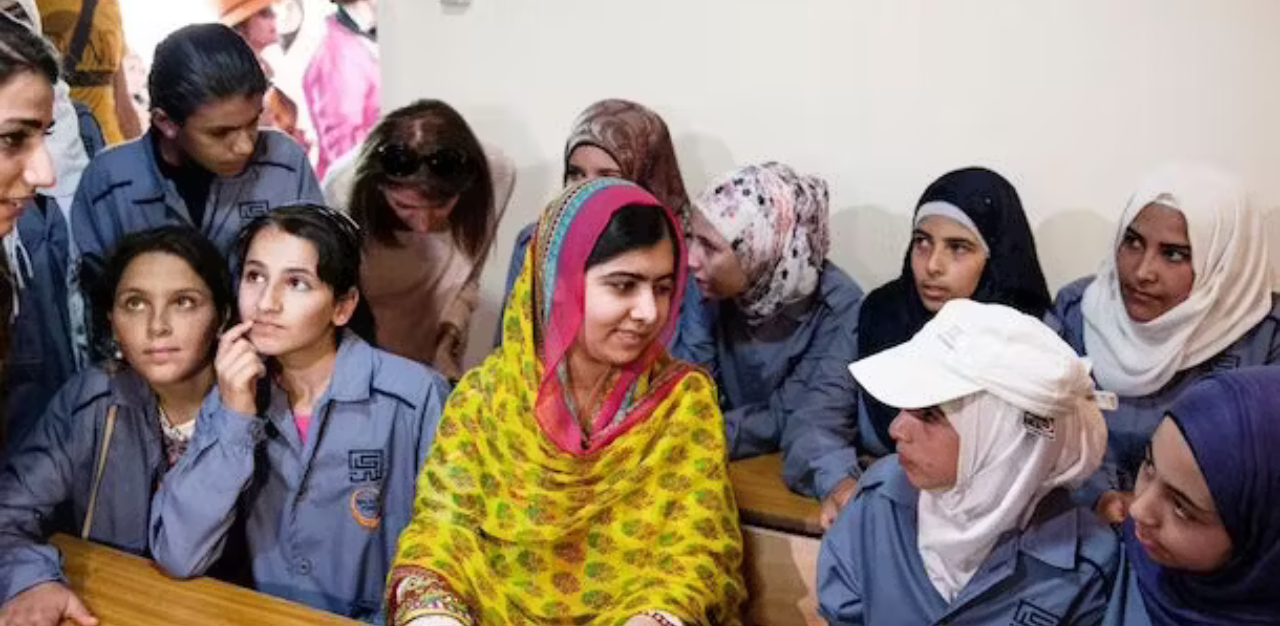
Looking Forward: Technology as a Tool for Change
While Malala acknowledged the transformative potential of AI and technology, she remained clear that these innovations should be seen as tools that empower, rather than replace, human roles. “Technology can be beneficial for making education more accessible, but it should never replace teachers or the classroom experience. And in healthcare, AI should not replace doctors but assist them in providing more accurate and efficient care,” she said.
Her message throughout the fireside chat was one of balance: embracing technology’s opportunities while ensuring that it enhances human connection, empathy, and inclusivity.
Malala also touched on the role of men in advancing gender equality, highlighting her father’s influence on her journey. “We need men to be the strongest voices for it, to challenge any perspective, coming from anywhere, to say that we cannot live in a world where we are looking at these things in a more sort of superiority, inferiority complex, that we are all equal, we all deserve equal opportunities. We cannot limit somebody from an opportunity based on their gender,” she said.
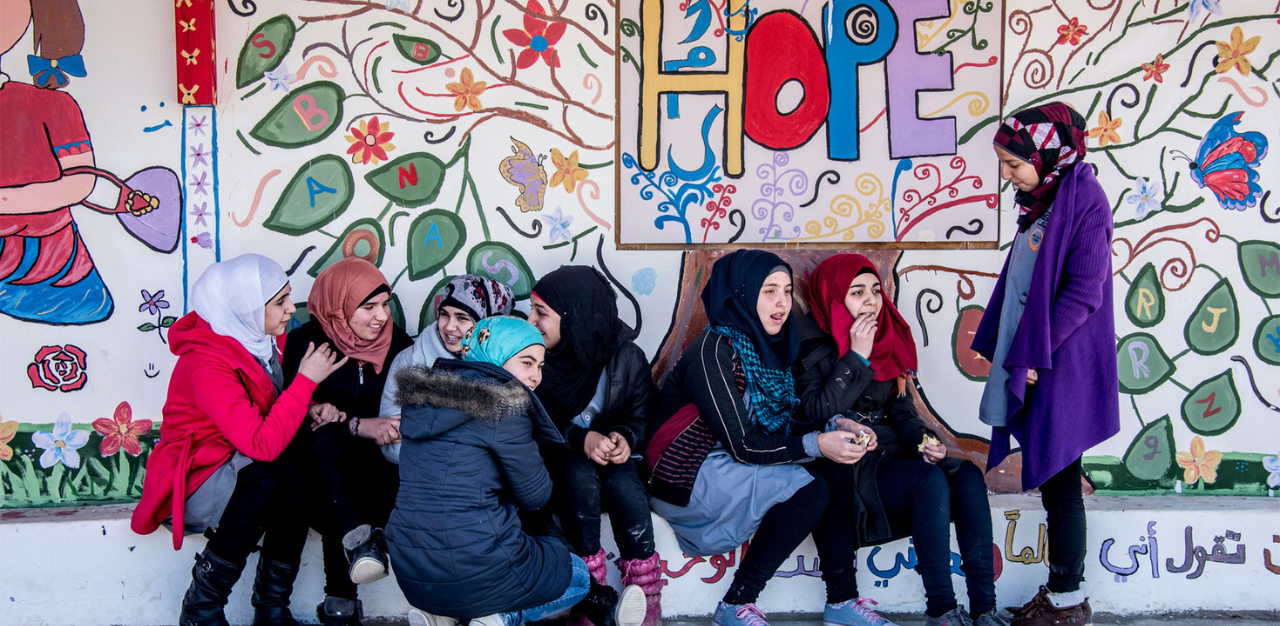
Importance of Human Values in Health Care
Malala’s insights at the APACMed MedTech Forum 2024 provided a powerful reminder that as we move towards a future shaped by AI, we must remain focused on the human values that lie at the heart of healthcare and education. Her call for inclusivity, collaboration, and compassion resonated with an audience eager to explore how AI can be harnessed to create a healthier, more equitable world.
As she concluded, Malala left the audience with a thought-provoking question: “How can we ensure that the tools and technologies we are developing today will uplift the most vulnerable among us tomorrow?”
With her inspiring vision, Malala continues to lead by example, urging us all to dream big, act with empathy, and ensure that no one is left behind as we chart the future of healthcare and education in an increasingly technological world. Her message was clear: technology should serve as a tool for empowerment, providing opportunities for those who are most at risk of being left behind while maintaining a strong focus on human connection, equality, and compassion.
For more information on the forum and upcoming events, visit medtechforum.asia.
RELATED: In Conversation With: Adele Lau, founder of animal-assisted interactions SG
Join the conversations on TheHomeGround Asia’s Facebook and Instagram, and get the latest updates via Telegram.



